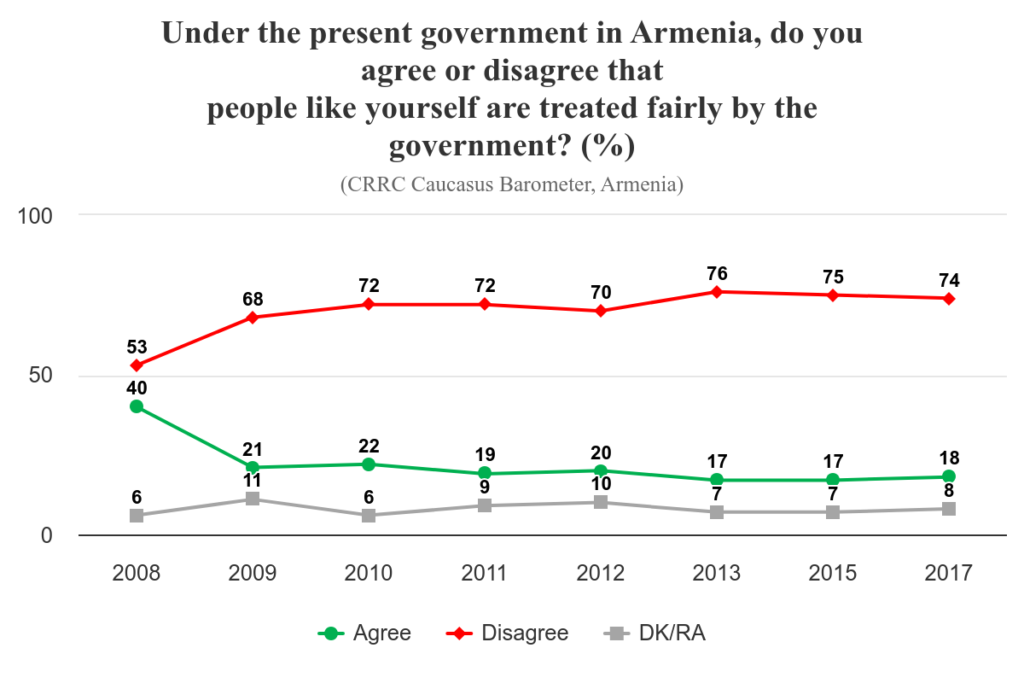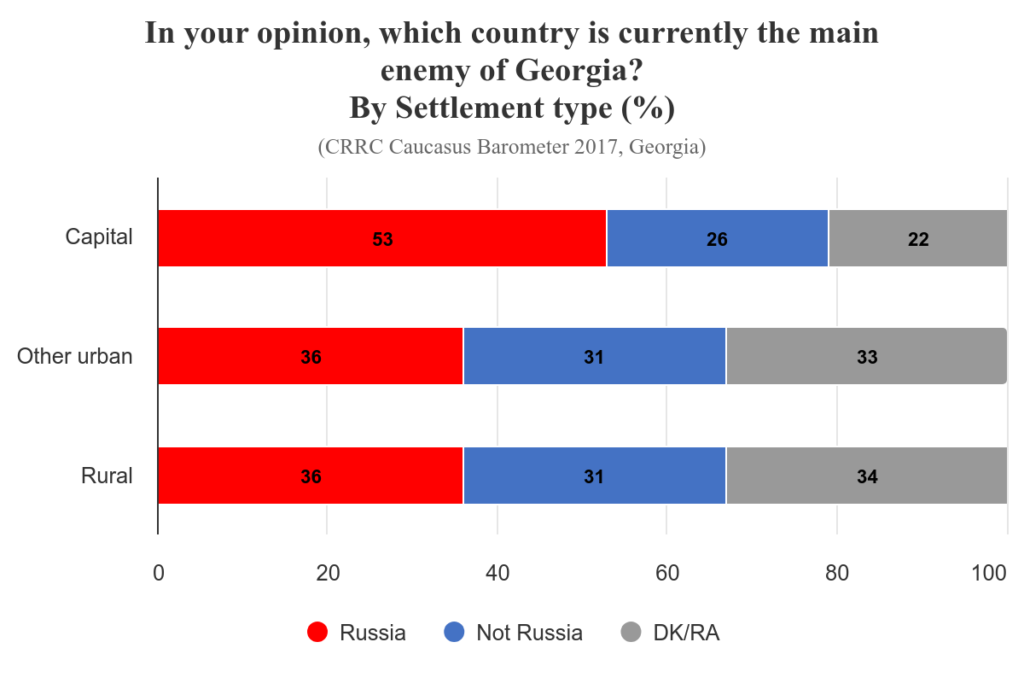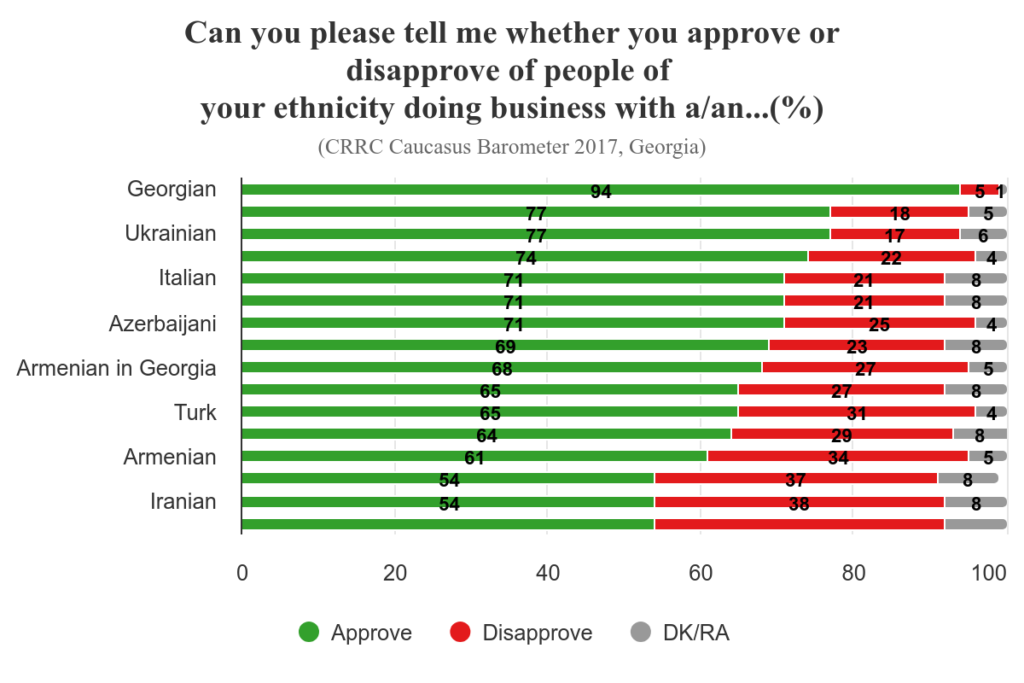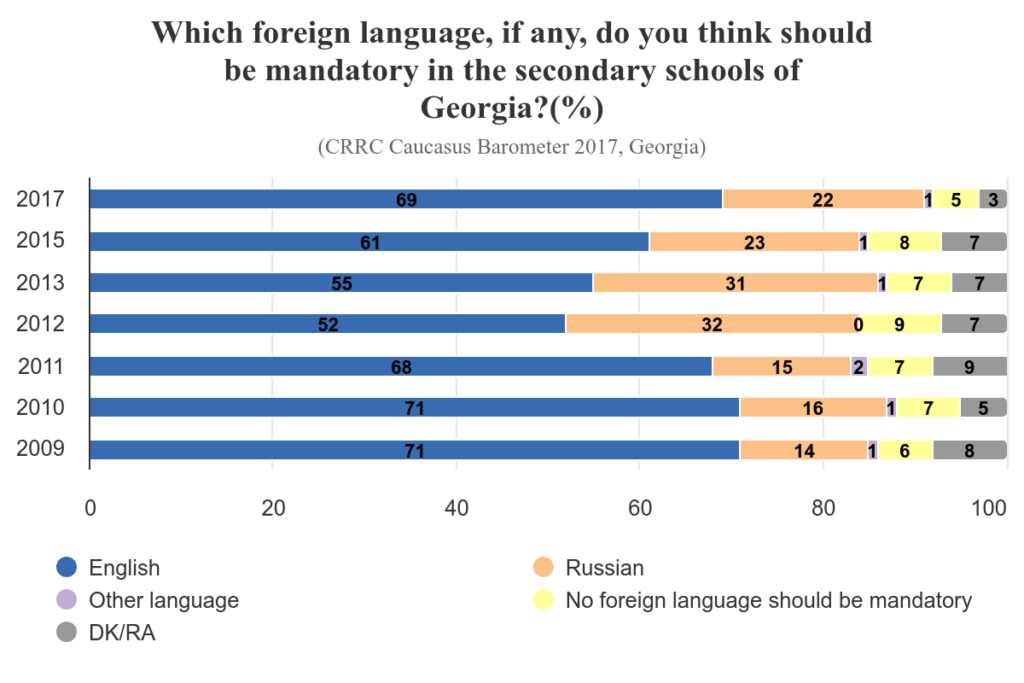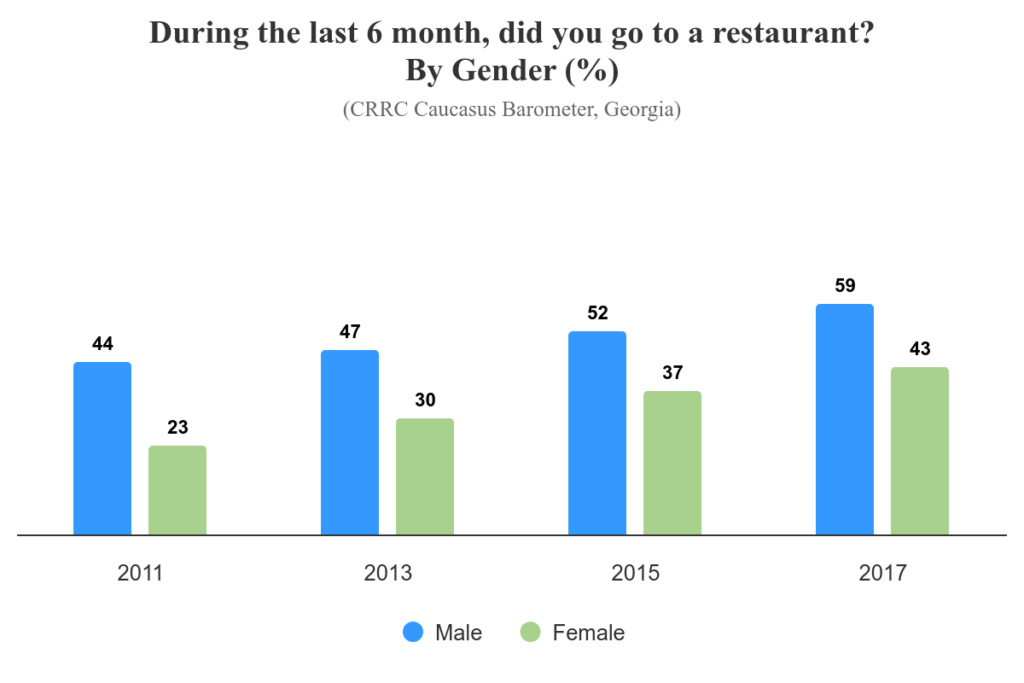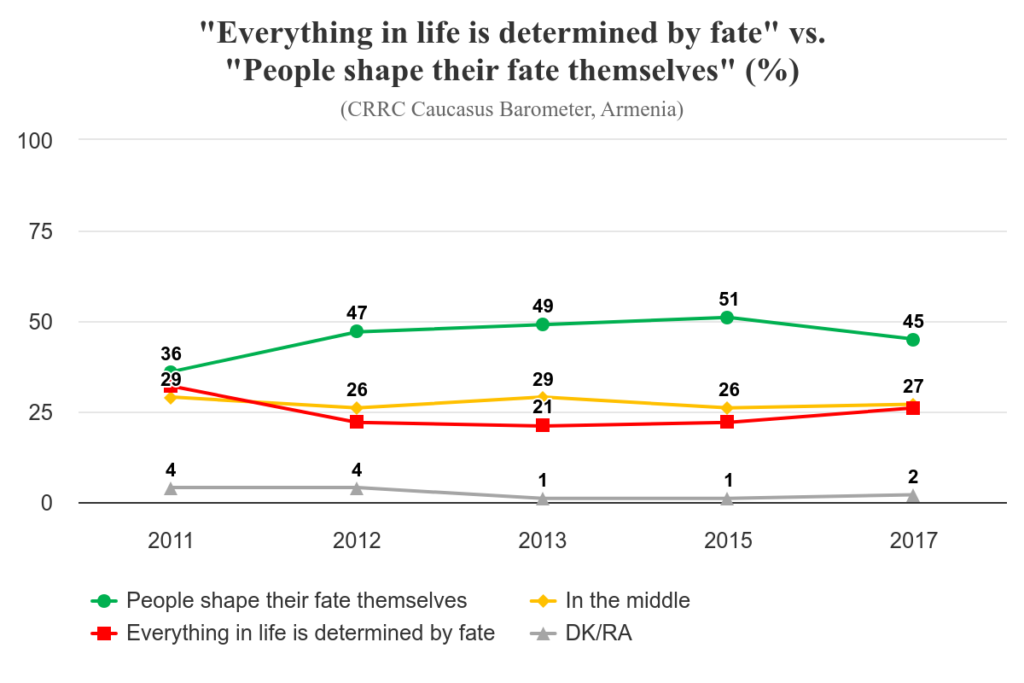
Scholarship points to a number of factors that contribute to an individual’s willingness to emigrate, either on a temporary or permanent basis. Political, economic, and social conditions are all important variables in the emigration equation. This blog post uses data from CRRC’s Caucasus Barometer survey to…
